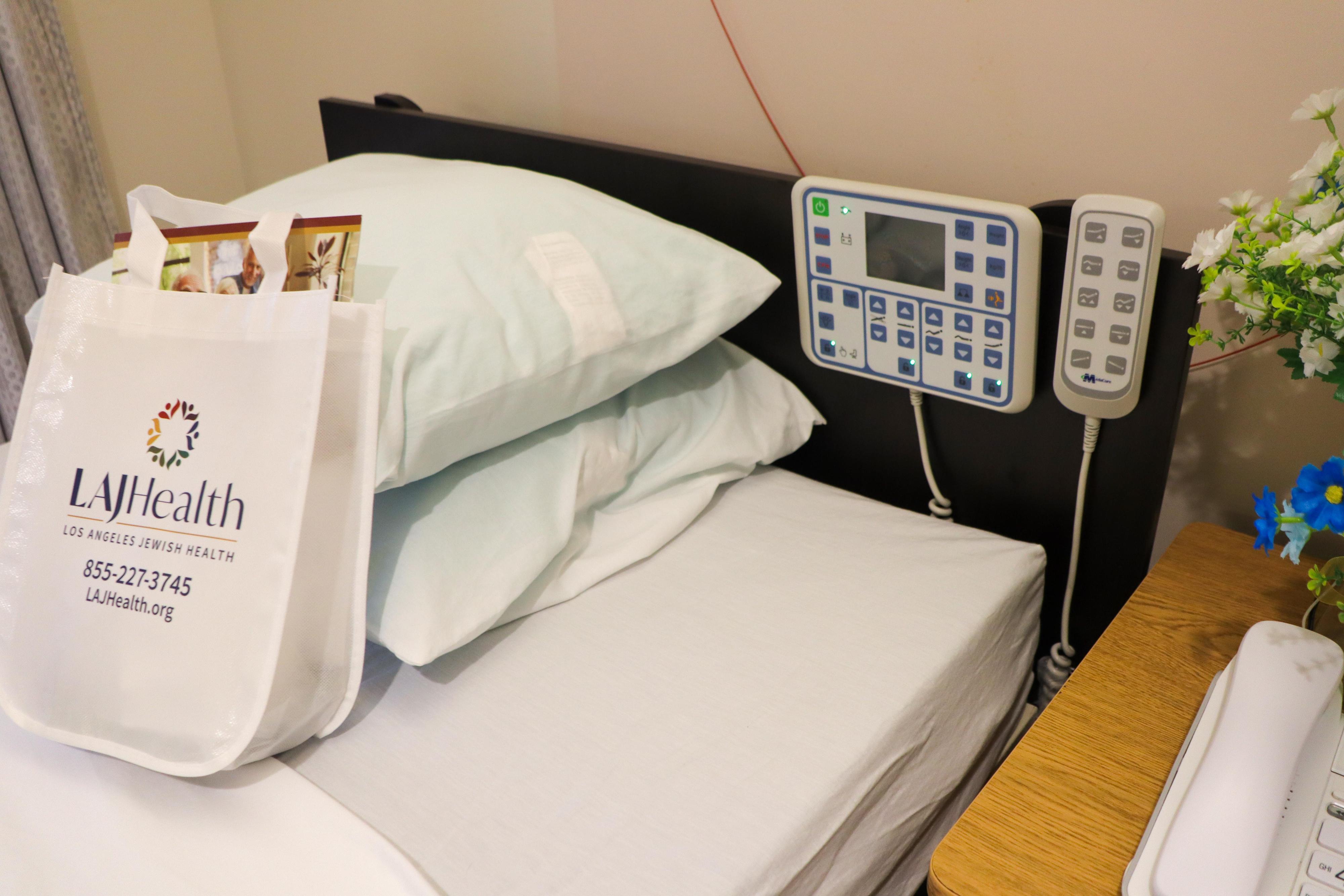LAJH Launches New Program for Congestive Heart Failure


Los Angeles Jewish Health Launches New Program Treating Seniors with Congestive Heart Failure
Los Angeles Jewish Health (LAJH), a leader in senior care, has launched a dedicated unit equipped to treat seniors suffering from congestive heart failure (CHF)—a condition where the heart is unable to pump blood well enough to the body.
The new unit enables patients with CHF to shorten hospital stays by spending a period of time in short-term rehab at LAJH prior to returning home. It also reduces readmissions back to the hospital compared to discharge straight to home.
“Nursing facilities don’t usually have deep expertise in acute congestive heart failure, so we’re definitely leading the way here,” says Noah Marco, MD, chief medical officer of Los Angeles Jewish Health. “Working with a multidisciplinary team of doctors, pharmacists, nurses, and administrators, we have developed a new standard of care, educated our staff, and formed partnerships with local hospitals, letting them know we are an important source of support in this area.”
The program features six specialized beds funded by the Office of the Third District of L.A. County’s Board of Supervisors. An additional 26 beds will arrive this fall, thanks in part to generous support from the Ahmanson Foundation. The high-tech beds monitor patients’ body weight, and, along with labs, EKGs, and lung fluid measurements, help inform the most effective course of treatment.

“In addition to the clinical team, our social services team helps provide patients with the resources to be successful following their stay with us,” says Charlette Ofrecio, administrator of the Mark Taper Building. “We teach about heart-healthy diets and how to monitor lung fluids at home, demonstrate strengthening exercises, and show patients how to incorporate regular activities into daily routines.”
“Prior to discharge, a pharmacist meets with patients to review their medications, and our registered dietician provides dietary recommendations to help manage their conditions at home. We also conduct a post-discharge follow up, ensuring they have a good understanding of what they need to do for their ongoing care,” says Sandy Carrillo, the Mark Taper Building’s director of nursing. “We only graduate residents from the CHF program once they’re stable and showing no signs or symptoms of CHF.”
Daniel Manavi, MD, a non-invasive cardiologist at Providence Cedars-Sinai Tarzana Medical Center and director of congestive heart failure at LAJH, says the establishment of a program like this has been years in the making.
“Throughout my practice, numerous facilities have entertained the idea of launching a CHF unit, but only Los Angeles Jewish Health recognized the need to invest in this program and actually found the resources to do so,” he says. “LAJH is doing a great job, and I am honored to be collaborating with the organization’s leadership to care for members of our local community.”
Going forward, LAJH plans to add additional specialty services based on the CHF program model.
“Our CHF Unit is just one of the steps we are taking toward offering personalized care to an aging senior population,” says Dale Surowitz, Los Angeles Jewish Health’s president and chief executive officer. “We look forward to developing innovative approaches that will keep seniors healthy and enhance the quality of their lives.”